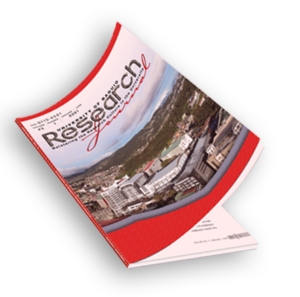
Training development needs of UB non-teaching employees
ABSTRACT
Institutions are faced with varying challenges as brought about by rapid development and the changing work environment, thus it is essential that institutions invest on human capital through the provision of training and development. In the University of Baguio, training and development has only been extended to the teaching employees considering that the employee program is also crucial to non-teaching personnel who plays a relevant role in the education institution. This study aimed to address the gap by looking into the professional and learning needs of the UB non-teaching personnel as well as their level of motivation for excellent job performance. The researchers used quantitative-descriptive type of research; and it was found out that the non-teaching personnel of the university have varying professional and learning needs in the areas of customer service, health and safety, personal development, administrative skills, communication skills, research competencies and community extension services. However, the female non-teaching personnel identified that they have a great need to be trained in communication skills, customer service, research competencies and personal development as compared to their male counterparts. When it came to age, employment status and job classification though, the non-teaching personnel identified similar degrees of professional and learning needs. More so, the non-teaching personnel saw that the various motivational factors highly influence the quality of job performance. Further, from the findings, a proposed professional and learning development or training development plan was crafted.
Authors
Leny O. Estacio, RGC1, Dr. Marilou M. Saong, ChE, LPT 2, Ma. Milagros T. Flores3, Dr. Ellen M. Halover4, Dr. Romer D. Tanyag5 and Rowena M. Tadeo6
1Director, Center for Counseling and Student Development
University of Baguio, Baguio City, Philippines
ORCID ID: https://orcid.org/0000-0002-9375-4252
Email: [email protected]
2 Faculty, School of Natural Sciences
University of Baguio, Baguio City, Philippines
ORCID ID: https://orcid.org/0000-0002-6431-1364
3 Head, Procurement Office
University of Baguio, Baguio City, Philippines
ORCID ID: https://orcid.org/0000-0003-2958-9026
4 Head, Quality Assurance Office
University of Baguio, Baguio City, Philippines
5 Director, Extension and Community Outreach Services
University of Baguio, Baguio City, Philippines
6 Staff, Human Resource Management Center
University of Baguio, Baguio City, Philippines
Keywords
training and development, non-teaching personnel, professional needs, learning needs, motivational factors
Issue
University of Baguio Research Journal
Vol. 44, No. 2 | July – December 2020
Published
- January 12, 2022
ISSN Information
(online) ISSN 2945-3321
This work is licensed under
CC BY-NC-ND 4.0

In this issue
Contact Us
- [email protected]
- [email protected]
- (074) 442-3036
- 77 General Luna Road, Baguio City Philippines 2600
